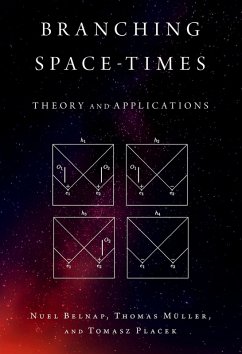This monograph presents the first detailed exposition of the formal theory of Branching Space-Times. The theory presented here by Nuel Belnap, Thomas Muller, and Tomasz Placek describes how real possibilities can play out in our spatio-temporal world. In our world, some things that are really possible in Cleveland are not really possible in San Francisco; other things were really possible in 1988 but are not really possible in 2021. The authors develop a rigorous, relativity-friendly theory of indeterminism as a local and modal concept, demonstrating that our world contains events with alternative possible outcomes. The book is divided into two parts. The first contains the exposition of the theory, including detailed proofs. The second contains three applications of Branching Space-Times in metaphysics and philosophy of science, focusing on the use of Branching Space-Times to represent pertinent forms of indeterminism in each area. Some specific applications include a formal analysis of modal correlations and of causation and a rigorous theory of objective single-case probabilities, intended to represent degrees of possibility. The authors link their theory to current physics, investigating how local and modal indeterminism relates to issues in the foundations of physics, particularly in quantum non-locality and spatio-temporal relativity. They also relate the theory to philosophy of time, showing how it may be used to explicate the dynamic concept of the past, present, and future based on local indeterminism. The Branching Space-Times theory has been in development over the past 25 years. This volume provides a much needed first systematic and comprehensive book-length exposition of both the theory and its applications. This is an open access title available under the terms of a CC BY-NC-ND 4.0 International license. It is free to read at Oxford Scholarship Online and offered as a free PDF download from OUP and selected open access locations.
Dieser Download kann aus rechtlichen Gründen nur mit Rechnungsadresse in A, B, BG, CY, CZ, D, DK, EW, E, FIN, F, GR, HR, H, IRL, I, LT, L, LR, M, NL, PL, P, R, S, SLO, SK ausgeliefert werden.

